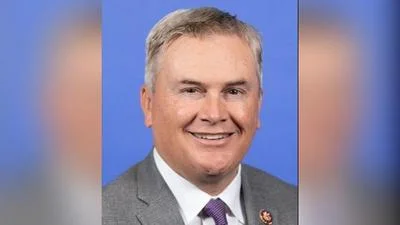WASHINGTON -- Thank you, Mr. Chairman. It is a pleasure to see the THUD bill moving through Full Committee this year. I would like to thank both you and your staff for maintaining an inclusive subcommittee process. You have been a good partner for the past four years and I value our relationship.
"Mr. Chairman, I will keep my remarks about the bill brief. We have had an open dialogue about the bill, including my concerns on Project Based Section 8 and Sustainable Communities, but also the areas of the bill where I think you deserve to be commended. However, I would like to take this opportunity to express my grave concerns about the overall lack of infrastructure investments in this Congress.
"Last year, the leaders of the U.S. Chamber of Commerce and AFL-CIO, not usually bedfellows, agreed that we must have greater investment in our nation's infrastructure in order to create jobs and to be competitive in the global economy. A modern, well maintained transportation network is absolutely necessary for our economy to grow and the country to prosper. Every good produced or consumed in the U.S. must be transported via our network of roads, rails and ports. As a result, the operational efficiency of that network determines whether American goods can compete in the global market place.
"Yet, report after report indicates that we are falling behind. The American Society of Civil Engineers' infrastructure report card gave us a "D" and estimated that more than a $2 trillion investment is needed. DOT's most recent Conditions and Performance Report indicates that there is an annual investment gap of $27 billion just to maintain our current system of highways and bridges in a state of good repair. The United States has the largest economy in the world yet the World Economic Forum's most recent ranking drops America's infrastructure quality to 23rd in the world.
"The reason for our infrastructure decline is simple. We are not raising enough revenue to fund our infrastructure needs. In 2000 the Highway and Mass Transit accounts took in $35 billion. By 2011 they were only taking in $37 billion. When you factor in inflation, we are raising 20% fewer dollars for our transportation infrastructure than we did ten years ago. This is unsustainable. During the same period the US population grew 10% to 309 million, 65% of whom live in metropolitan areas having populations of greater than 500,000.
"Our largest 50 metropolitan areas have more than 1 million in population. Thirteen of them, all cities in the Sunbelt, such as Dallas, Houston, Orlando, Phoenix and Charlotte, grew more than 25% in the last decade. Such burgeoning communities need a massive, timely expansion of both highway and transit facilities in order to ensure that rapid population growth doesn't choke their economies with congestion.
"In contrast, 22 of those 50, older mature metropolitan areas including Boston, New York, Philadelphia, Cleveland, Pittsburg, Chicago and Los Angeles are growing slower than the national average, but their built out highway, transit and commuter rail systems are deteriorating and need a massive, timely program of rehabilitation to simply reach a state of good repair.
"Our rural areas face an even worse problem. The number of counties in rural America that are losing population is rising rapidly. With that comes disinvestment in education, health care and public infrastructure. Yet the entirety of the rural road system must be maintained in a state of good repair or our rural areas will become ever greater pockets of poverty.
"If we are to meet these changing population demographics and provide a transportation system that functions as a sound foundation and not a hindrance on our economy, Congress must find the means and grow the political courage to raise revenue. The current debate on the surface authorization does not accomplish that. In fact, the present gridlock of debate is only effective at slowing economic growth and keeping America's unemployment high. That cannot be America's goal.
"Mr. Chairman, I recognize that this committee has no jurisdiction over the authorization bill and I appreciate your indulging me. For the last few years I've watched with increasing distress the lack of progress being made. I feel strongly that the Congress and the public in general need to be aware of the consequences of our in action.
"I yield back."
Source: U.S. Department of HCA




